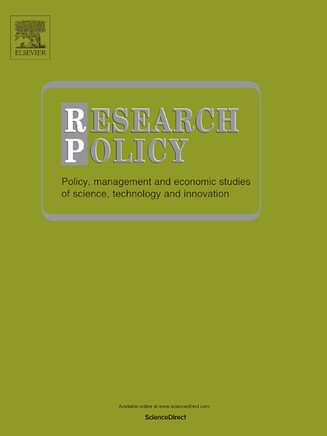ASSESSING THE PRACTICAL APPLICATION OF SOCIAL KNOWLEDGE: A SURVEY OF SIX LEADING CANADIAN UNIVERSITIES
ABSTRACT
This paper presents findings from a survey of the applied dynamics of university research in the social sciences, fine arts and humanities. Theoretical and methodological issues are explored that arise when social knowledge is considered in an innovation context. An investigative framework and study design are outlined and the findings from a survey of six Canadian universities are presented. It was found that the market for social knowledge is extensive, that a broad range of academic researchers across disciplines engage in this activity, and that applied work is becoming more of a structural component in the portfolio of many researchers. Social knowledge application was found to involve highly reflexive relationships between academic and non-academic communities that combine financial, infrastructural and intellectual resources. It was found also that both social and technical knowledge are similar as regards the scope, extent and dynamics of their application in non-academic client communities, but that most social knowledge applications occur independently of technical inputs, stimulating and supporting innovation in a wide variety of technological and non-technological contexts. The implications for policy are that policy-makers should re-examine superficial assumptions that technical knowledge is intrinsically more valuable in stimulating innovation than is social knowledge, particularly in the contemporary business environment which is oriented so substantially to consumer goods with pronounced social and cultural dimensions. (C) 2014 Elsevier B.V. All rights reserved.
Statistics
Web of Science Times Cited
14
Journal Citation Indicator
1.86

